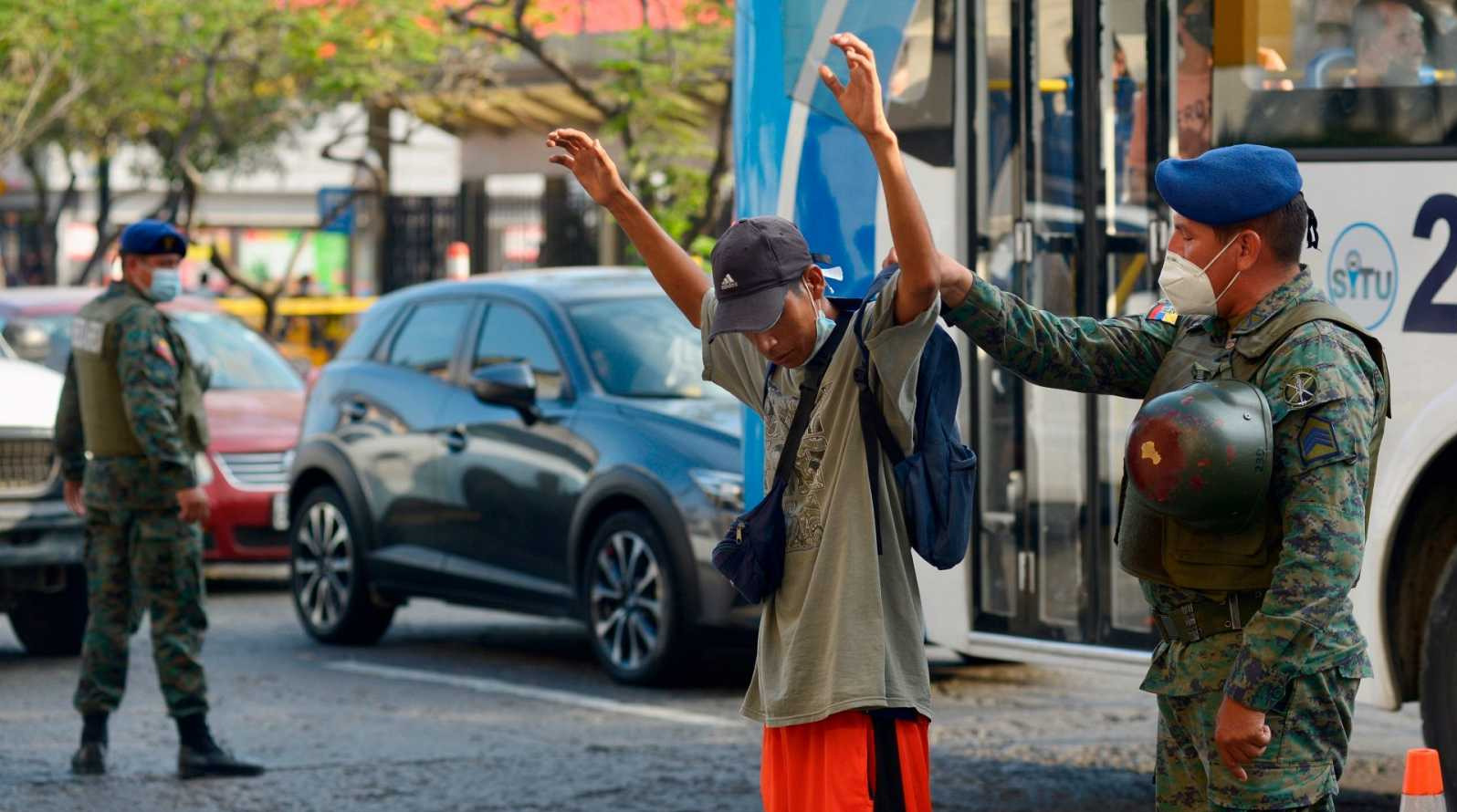
In recent months Ecuador has been immersed in a wave of violence.
By María Josefina Arce.
In recent months, Ecuador has been immersed in a wave of violence. Prison massacres, with a toll of more than 300 dead, and an increase in robberies and homicides have characterized the panorama of the South American nation.
According to statistics, in 2021 there was a rate of 13.13 homicides per 100,000 inhabitants, a rate that experts value as the worst in the last decade.
This year is not going any better. Three weeks into the year, the country has already recorded close to 200 violent crimes.
The response of President Guillermo Lasso's government has been to decree states of exception, reinforce police controls and request support from the Armed Forces to ensure security in the streets. In the last few days he also removed the general commander of the National Police and announced the allocation of resources for the equipment of that body.
The President blames drug trafficking for the current situation. Although this illegal business has increased, since Ecuador went from being a transit country for drugs to a country where they are stored, processed and distributed, Lasso tries to leave aside economic and social factors, which for experts have been essential.
The arrival of COVID 19 came to exacerbate the serious economic crisis the nation is going through, which has been going on since the previous administration of then President Lenín Moreno. In 2020, the Gross Domestic Product contracted 7.7%, which resulted in the bankruptcy of companies, more layoffs and an increase in the number of poor people.
In the last two years, poverty rose to 32.2%, while the extreme poverty index increased to 14.7%, according to statistics.
Unemployment has also hit the Ecuadorian territory. Fifty-one percent of citizens work in the informal sector, which does not guarantee their rights or stability and was seriously affected by the pandemic.
To all this is added the Austerity Plan demanded by financial organizations such as the International Monetary Fund, to face its debt and the commitments made by the IMF loan made under Moreno's mandate, which has deteriorated the living conditions of the population, in view of the cuts in various essential services.
The violence that shakes Ecuador is the result of the sum of several factors, among which prevail the deterioration of the economy and the living conditions of the population.
The four years of Moreno's mandate swept away the progress made during the ten years of Rafael Correa's government, which from 2007 to 2017 developed and modernized the economy and worked in favor of health, education, social security and greater equity.

